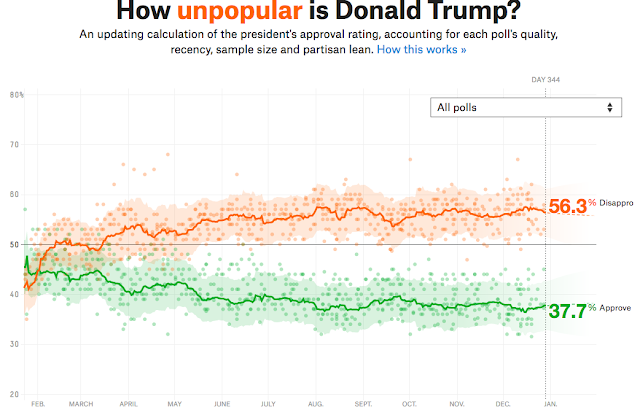What did Donald Trump do today?
He sold access to himself.
Trump is expected to attend tonight's New Year's party at Mar-a-Lago, the private club and de facto winter seat of the executive branch under his administration. Because ticket-buyers can count on Trump's attendance, tickets to the party now cost $600 for the club's 500 members and $750 for guests--a price hike of 14% and 30% respectively over what then-president-elect Trump charged for proximity to himself.
The steep price tag--steep by most Americans' standards, anyway--is unlikely to deter many Mar-a-Lago members, who now pay $200,000 for their memberships and $15,000 in annual dues. If 4/5ths of the membership attend with a guest, Trump--who directly profits from all Mar-a-Lago revenues--will gross $540,000 on the night's tickets alone. (The actual number of tickets available is unclear, but the event will be bigger than last year's, which sold out.)
Trump's self-appointed "outside ethics advisor," Bobby Burchfield, declared the arrangement free of any ethical concerns. Burchfield is employed by the Trump Organization, which--in spite of the best efforts of actual, independent ethics officers--remains under the direct control of its principal owner, Donald Trump.
Unfortunately for mere rank-and-file millionaire members, however, their tickets may not buy them a private word with Trump this year. A separate VIP section is being built, although who will be permitted inside it or how much admission costs has not been revealed.
Why does this matter?
- Presidents should not sell access to themselves.
- It remains unethical and unconstitutional for a president to profit from his office.
- There are more important things for the President of the United States of America to do than drum up sales for his private business concerns.
| The weekly review, which normally appears on Sundays, will take place tomorrow. |


